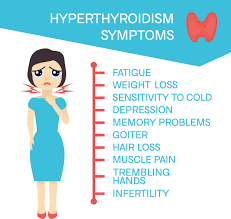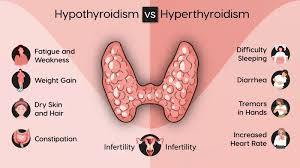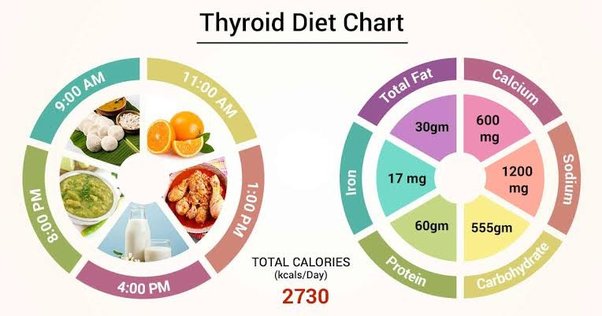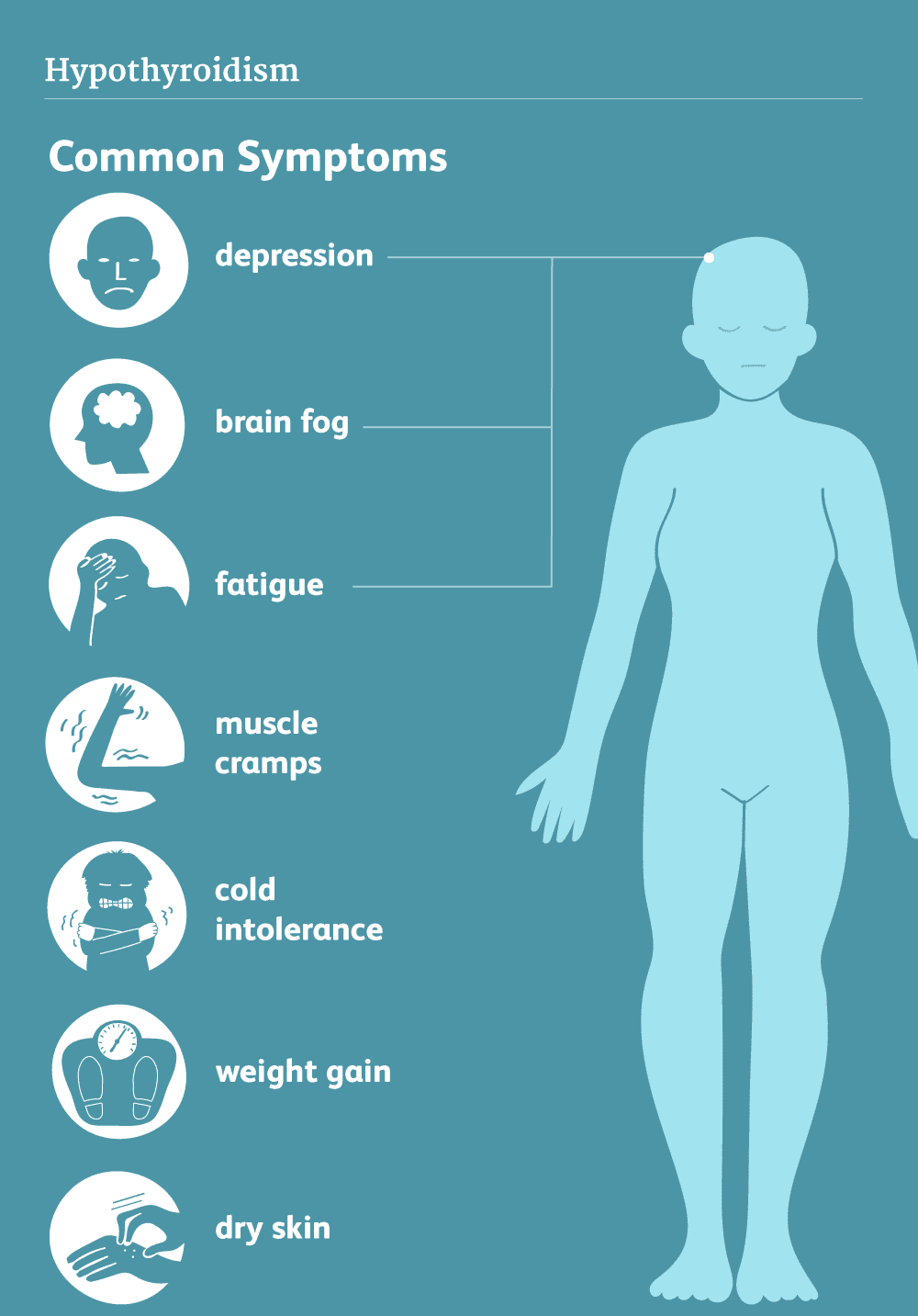The thyroid which is an organ located in the front part of your neck, seems like a butterfly in shape. It plays an important role in regulating growth and metabolism in the body. The thyroid when gets imbalanced in the body we can see certain conditions such as hyperthyroidism and hypothyroidism.
Hyperthyroidism:
In the condition of hypothyroidism, the thyroid organ produces excessive amounts of thyroid hormones such as thyroxine(T4) and triiodothyronine(T3). The overproduction of these hormones impacts the body with certain signs and symptoms.
Hyperthyroidism Causes:
The first common cause of this hyperthyroidism is Graves' disease, it’s an autoimmune disorder in which the immune system affects the thyroid organ, that leads to results in more hormones being released. Other causes include abnormal growth of thyroid gland called thyroid nodules, and inflammation of thyroid harm known as thyroiditis.
Hyperthyroidism Symptoms:
Hyperthyroidism shows some of the signs and symptoms, which include as follows :
 1) Major weight loss and increased kind of appetite.
1) Major weight loss and increased kind of appetite.
2) Increased heartbeat (tachycardia) and palpitations.
3) Anxiety, irritation, and Uneasiness.
4)Tremors in the hands and fingers.
5) Being intolerant to heat and sweating over.
6)Fatigue and weakness in muscles are also a symptom of hyperthyroidism.
7) Most women experience irregular menstrual cycles due to hyperthyroidism.
8)Expanded recurrence of bowel movements.
Hyperthyroidism Treatment:
Treatment choices for hyperthyroidism aim to control thyroid hormone levels in the body and reduce such symptoms.
Antithyroid drugs:
Drugs like methimazole and propylthiouracil (PTU) regulate the production of thyroid hormones.
Radioactive iodine treatment:
Treatment includes the radioactive iodine which is orally consumed, that destroys thyroid cells, and lessens the hormone generation.
Beta-blockers:
This solution offers the assistance of easing symptoms like an increase in heartbeat and tremors.
Surgery (thyroidectomy):
Surgical removal of a portion or all of the thyroid organ may be necessary in serious cases or in case other medicines are not working out.

Hypothyroidism:
Hypothyroidism is quite the opposite of hyperthyroidism a condition where the thyroid organ can not produce enough thyroid hormone.
Hypothyroidism Causes:
The most common cause of hypothyroidism is Hashimoto’s thyroiditis a condition where the immune system attacks the thyroid gland causing inflammation and damaging the thyroid gland. Certain cases like thyroid surgery, iodine deficiency, radiation treatment, and high-dosage medications can also cause hypothyroidism.
Hypothyroidism Symptoms:
Hypothyroidism results in some of the symptoms including:
|
2)Weight gain. 3) Sensitive to cold temperatures. 4) Delicate nails and Dry, pale skin. 5) Result in Constipation. 6) Hair thinning or Hair loss 7 )Joint and muscle pains, stiffness, etc. 8) Sometimes feeling like Depression and kind of mood swings. 9)changes in menstrual cycle and irregular periods in women 10) trouble in concentrating on things and lack of memory issues. |
Hypothyroidism Treatment:
Treatment for hypothyroidism includes long-lasted hormone substitution treatment with artificial thyroid hormones, such as levothyroxine (Synthroid, Levoxyl). That aims to reconstruct ordinary thyroid hormone levels. Measurement changes may be necessary over time to guarantee ideal hormone levels.
Diet For Thyroid Problems :
 Thyroid patients are recommended to take nutrient-rich foods. Focus on iodine-rich foods like seaweed, iodized salt, and fish, as iodine is important to thyroid hormone production. Consume selenium sources such as Brazil nuts, eggs, and vegetables, as selenium helps in regulating thyroid hormone. Also, some kinds of foods like rich in zinc lean meats, nuts, and seeds, as zinc helps thyroid function and hormone generation. Vitamin D-rich foods like fatty fish and fortified dairy items, which offer assistance control thyroid hormone levels. Emphasize whole grains for fiber and energy, but consider restricting gluten, because it may encourage immune system thyroid conditions like Hashimoto's thyroiditis. Try to avoid vegetables like broccoli and cabbage, as they contain goitrogens which will fluctuate and change the function of thyroid hormone. Staying hydrated and reducing the consumption of coffee and alcohol can help to prevent hormonal imbalances in the thyroid organ.
Thyroid patients are recommended to take nutrient-rich foods. Focus on iodine-rich foods like seaweed, iodized salt, and fish, as iodine is important to thyroid hormone production. Consume selenium sources such as Brazil nuts, eggs, and vegetables, as selenium helps in regulating thyroid hormone. Also, some kinds of foods like rich in zinc lean meats, nuts, and seeds, as zinc helps thyroid function and hormone generation. Vitamin D-rich foods like fatty fish and fortified dairy items, which offer assistance control thyroid hormone levels. Emphasize whole grains for fiber and energy, but consider restricting gluten, because it may encourage immune system thyroid conditions like Hashimoto's thyroiditis. Try to avoid vegetables like broccoli and cabbage, as they contain goitrogens which will fluctuate and change the function of thyroid hormone. Staying hydrated and reducing the consumption of coffee and alcohol can help to prevent hormonal imbalances in the thyroid organ.
Conclusion:
Hyperthyroidism and hypothyroidism are common types of thyroid conditions that moreover affect overall health. Knowing the causes, symptoms, and treatment choices for these conditions is possible for early cure. consult with a doctor for necessary assessment and treatments.

 1) weakness and Fatigue.
1) weakness and Fatigue.